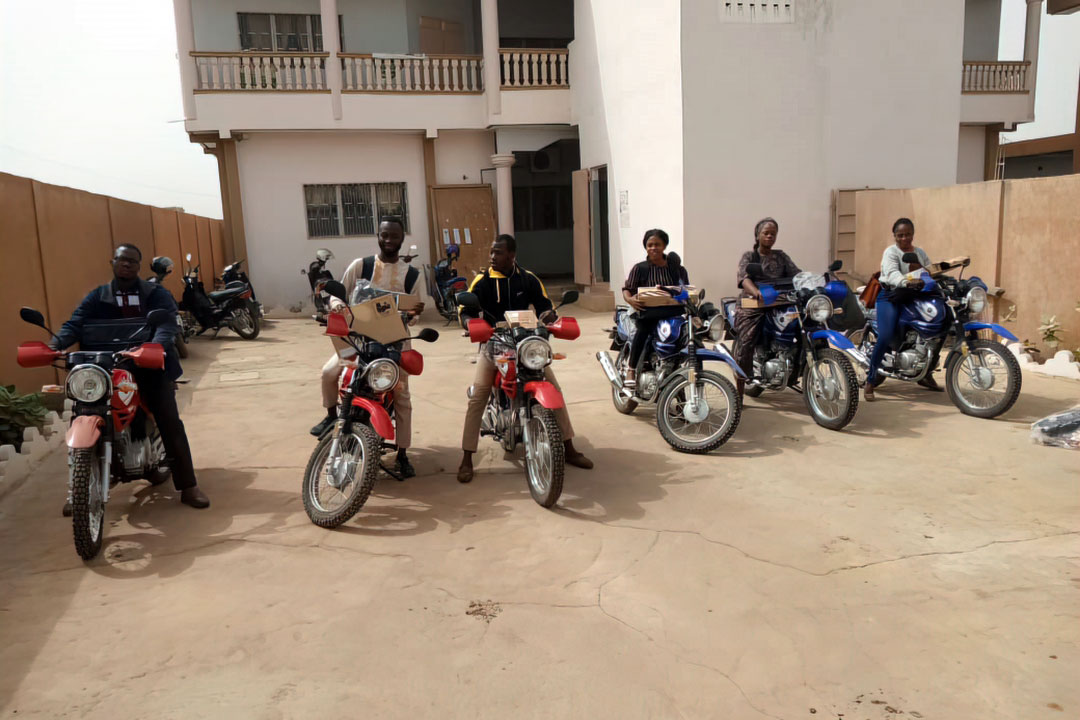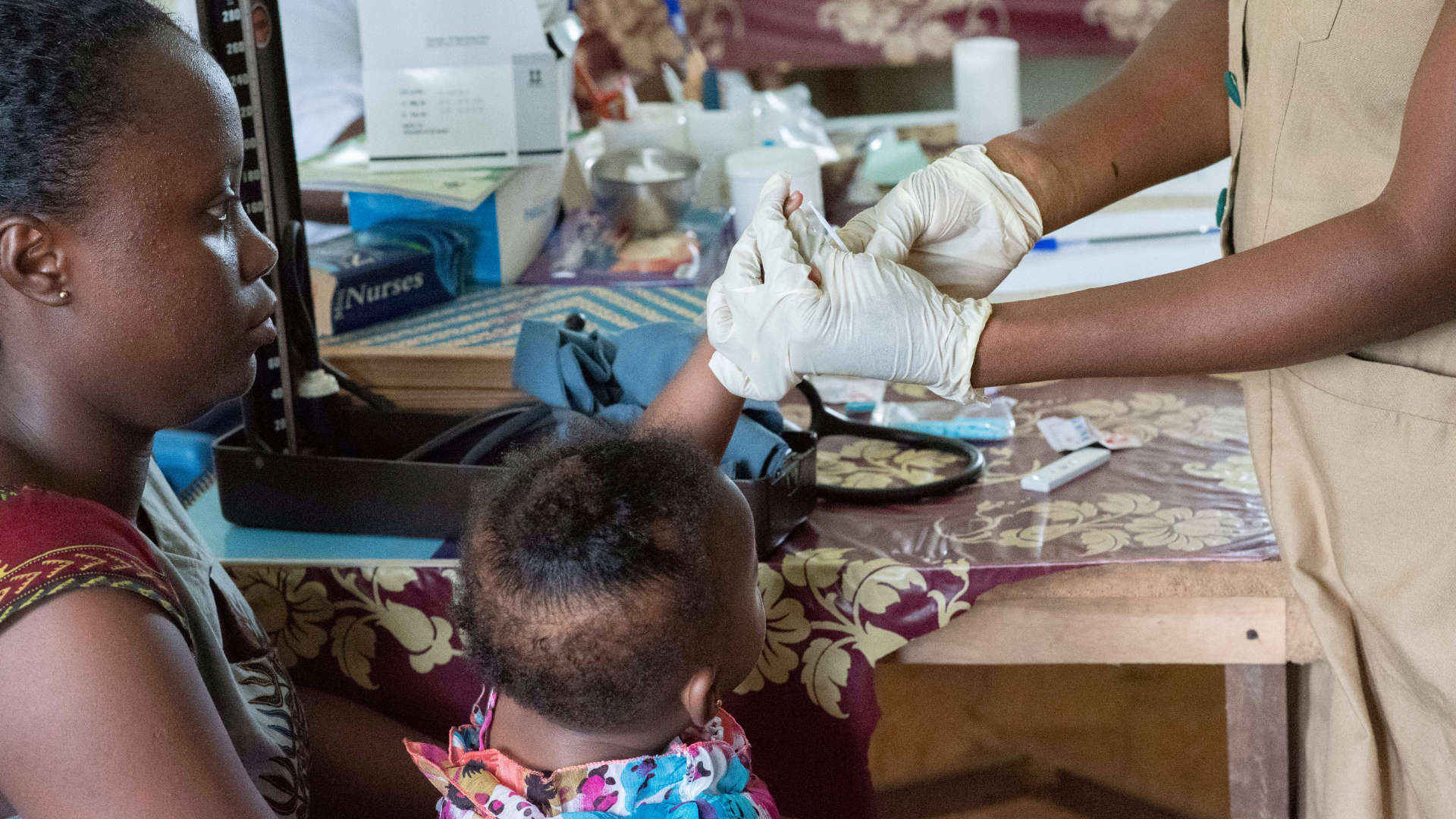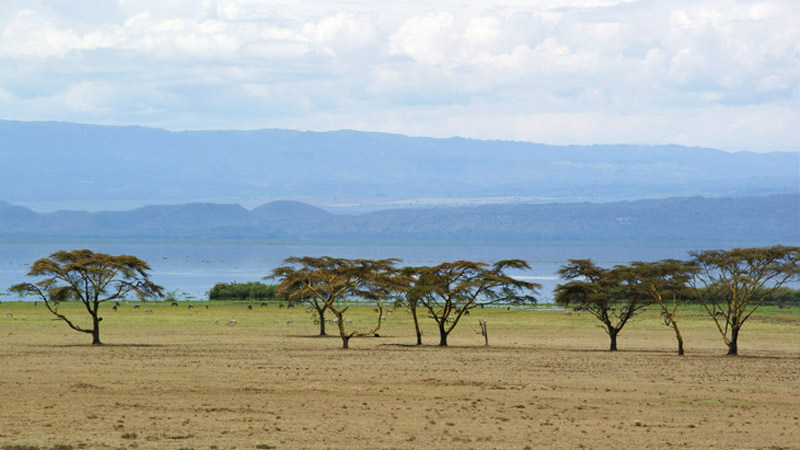In-country logisticians provide critical expertise in support of the delivery of essential health products. They improve the availability of health commodities and ensure accurate and timely reporting on key logistics performance indicators, while improving quality control within the supply chain.
A 2015 assessment by USAID’s Systems for Improved Access to Pharmaceuticals and Services Project revealed that health supply chain management responsibilities in most health zones of Benin were undertaken by unqualified personnel. The assessment highlighted the need for a cadre of trained logistics professionals to ensure accessibility of essential medicines, supplies, and equipment for health care delivery.
Through its work in Benin on the USAID-funded Global Health Supply Chain – Technical Assistance (GHSC-TA) project (Francophone task order), in collaboration with Chemonics International, the prime contractor, URC has contributed to the development and expansion of a Young Logistician Professionals (YLP) Program, an initiative launched by USAID. The YLP Program is supported by the Foundation for the Private Health Sector (PSSP) [Benin’s private sector health association], the local implementer with whom the project signed a memorandum of understanding. The YLP Program was created to address challenges associated with the limited availability of qualified health systems staff to support the country’s supply chain.
Learning How to Be a Logistician
In January 2019, the first cohort of 15 young logisticians graduated from a training program focused on:
- Logistics Management Information System (LMIS): use of the electronic platform to track data on logistics management
- Gender: how to recognize and report sexual harassment and gender-based violence
- Benin’s health commodities supply chain pyramid and its challenges
- Mapping of municipalities: to better understand the number and location of public and private health facilities within their assigned municipality to facilitate activity planning
- Leadership skills for optimum communication with public health officials
- Introduction to essential medicines: information on medications including those particularly relevant to the Beninese context, such as antimalarials and reproductive, maternal, and child health medicines; trade and non-proprietary names of medicines and typical standard treatment guidelines
- Landscape of USAID projects in Benin: to understand the scope of other USAID health-focused initiatives in Benin and how to work collaboratively with them
- DHIS2: a web-based tool developed for collecting, validating, analyzing, and presenting aggregated and patient-based statistical data
- Community-based epidemic management
During the training, YLP participants also participated in a tour of the national central medical warehouse facility.
The training methodology for each topic begins with a pre-test to assess the knowledge of participants. The participants are then divided into two groups based on their prior knowledge and training. All participants then reconvene in plenary before undertaking a post-test to determine mastery of topics covered.
Hands-on Contributions
Following the training program, YLPs are posted in districts throughout Benin. Program graduates have begun to play a critical role in keeping local leaders informed about the availability of health products and identification of solutions to solve challenges encountered. Prior to this program, elected municipal officials lacked knowledge of the health product supply chain and related challenges in their communities. The YLPs help local government counterparts better understand the role they can play in supporting an improved health commodity supply chain.
YLPs now participate in 80 percent of municipal council meetings in the districts where they work. They routinely present data on the management of health commodities, including stockout and overstock rates. They also provide overall recommendations on solutions to prevent chronic stockout and overstock and to improve service delivery. One such solution is the use of solar panels to ensure the maintenance of the cold chain.
A YLP working in Seme Podji noted:
“Under the YLP Program, I’ve better understood the logistics of the health supply chain, and the importance of having quality data available on time at all decision-making levels to ensure health product availability.”
Data Makes a Difference
Close to 99 percent of health facilities supported by the program now send their monthly logistics reports on time to the health zone warehouse for 75 tracer products which are then captured into the DHIS2. The data is used to review and prepare orders sent to the health facilities, and if required, to recommend transfers of stocks between heath facilities. As a result, stockout rates dropped from 19 percent at the start of the program to six percent in the third quarter of implementation.
The head doctor of the Karimama Commune, or District, praised a YLP saying:
“Since his installation in the municipality of Karimama, a Young Logistician Professional…has made a strong contribution to improving the storage conditions for health products. … He helped pharmacy clerks complete outdated inventory management tools. He assists health workers considerably in the preparation of purchase orders to avoid stockouts, expiration, and overstocking. We thank the PSSP, and by extension, USAID, for their contribution by sending us this YLP. We reiterate our commitment to support him in the success of his mission in the municipality of Karimama.”
What the Future Holds
In February 2020, given the positive results of the YLP program,15 new participants were trained and deployed to 14 districts across Benin, bringing the total coverage to 30 YLPs in 29 districts. Recent growth of the program was backed by funding from USAID, UNICEF, and UNFPA. This year, the World Bank, through its Sahel Women Demographic Dividend project, is preparing to recruit 77 new logisticians to be deployed across all 77 municipalities of the country.
The project is working with local counterparts to explore options to ensure the sustainability of the YLP Program once the project comes to an end.



